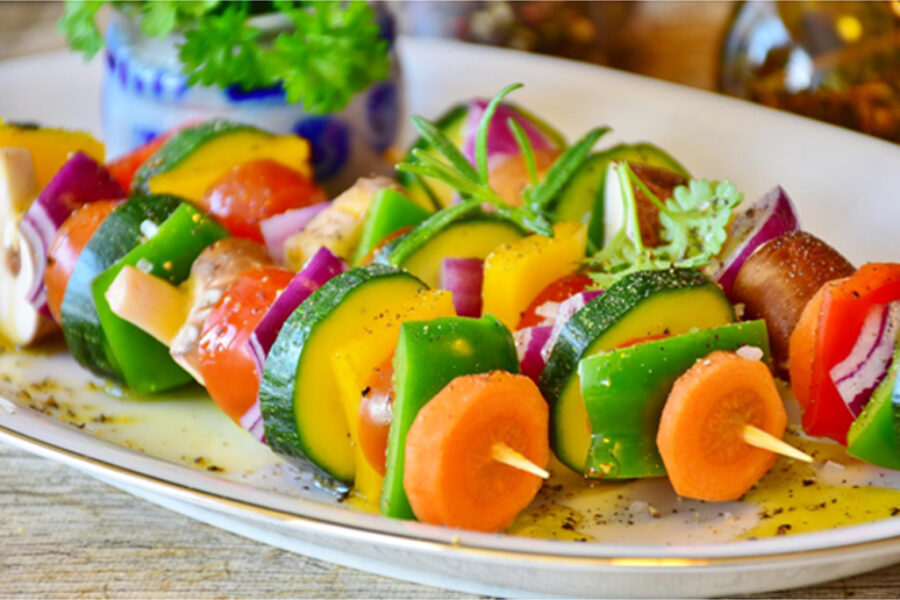If you’re traveling abroad, it can be difficult to find places that serve vegetarian food and even more difficult to avoid eating meat when you’re out and about. So, before you pack your bags, read these 7 travel tips for vegetarians who want to enjoy good food when they travel.
No matter where you’re going, you’ll come back with new tips on how to make the most of your vacation!
Research before you go
Planning in advance will save you a lot of trouble later. Figure out where you’re going to eat and what restaurants are available ahead of time, so that if you find yourself with only one option for your dietary needs it doesn’t throw off your entire trip. Use websites like HappyCow to find veg-friendly options wherever you go. If a restaurant doesn’t have anything vegetarian listed on its menu, just ask if they can make something custom for you.
It might take a little more effort than ordering from their normal offerings, but people who run restaurants want to keep their customers happy! You never know when you might be able to get them to add a new item or two.
Take snacks with you
The key to traveling while following a vegetarian diet is to always have snacks on hand. It’s nice to munch on carrots, nuts, or dried fruit when you’re at a rest stop. It’s also helpful to plan ahead and locate restaurants in advance that will have food you can eat. Before traveling by car or plane, look up vegetarian restaurants in each destination so you know where you will be able to find something good when hunger strikes. You might even consider packing some of your own healthy meals in Tupperware containers. There are lots of great vegetarian recipes online that are easy to make and store for later.
If there isn’t a restaurant nearby don’t panic! If you do get stuck somewhere without many options, it may still be possible to survive without meat—especially if it’s just for one meal.
Buy fresh produce on the road
Not only is it more healthful, but you can’t beat fresh vegetables and fruits. Pack enough to get you through at least a few days so that you don’t get stuck eating fast food or subpar alternatives. This way, you’ll have time to find local grocery stores or farmer’s markets. If need be, freeze them as soon as possible when you reach your destination; they shouldn’t last much longer than that in most cases anyway.
You can also bring along some pre-made snacks like nuts, trail mix, dried fruit, etc., which are generally cheaper than their prepackaged counterparts and allow you to eat on-the-go without having to worry about finding healthy options while traveling.
Look up vegetarian places in advance
There are lots of vegetarian restaurants in most cities and towns, but you can’t always be sure if they have options that fit your needs. Make a list of local places where vegetarians eat so you know to ask when you arrive.
Before booking a hotel, find out if there’s a kitchen or communal area where you can prepare your own food, since many hotels don’t have dedicated vegetarian rooms. And finally, always carry snacks like nuts, dried fruit, energy bars and protein-rich foods with you—just in case.
Don’t expect restaurants to cater to you
The best way to eat well in a foreign country is to simply tell restaurants what you do and don’t eat. It doesn’t always work out but if you ask nicely, most people will accommodate you. Just remember that most countries aren’t vegetarian-friendly, so don’t be surprised when menus are limited or meat is present on all of them. Also, many restaurants (especially fast food places) use animal fat for frying. Be sure to ask whether they can prepare your meal without it before you order anything fried. You might even want to bring along some of your own vegetarian foods with you just in case things go awry (like peanut butter, crackers, granola bars etc.).
If possible, try eating at home as much as possible while traveling; it helps cut down on expensive restaurant bills and allows you more control over what goes into your body.
Call ahead, prepare politely
Call your hotel, hostel or bed and breakfast in advance. Explain that you are a vegetarian and explain what your options are—e.g., oatmeal with soy milk instead of cow’s milk, vegetarian pasta entrée or vegan protein bars. It will save you a lot of time when you arrive at your destination to not have to hunt down food immediately after a long day of travel. Be polite! No one likes an entitled traveler who is angry because they didn’t get their way. A little politeness goes a long way in making sure everyone has a good trip. You might even find that some establishments are willing to accommodate special requests if given enough notice.
This option isn’t always available (or possible) but it never hurts to ask. If you know where you’ll be staying ahead of time, try calling them directly for more information on special dietary needs and preferences before arriving at your destination; restaurants sometimes offer menus online as well so check there first.
Treat yourself once in a while
If you’re a vegetarian and traveling, it can be hard to find places that serve vegetarian food. This can leave you feeling like you have to choose between eating something unsatisfying (and less healthy) or skipping a meal altogether. You’re better off making a deal with yourself—like one meal per day where you allow yourself to eat what everyone else is eating. Just make sure it really is an occasional treat!
A good travel tip for vegetarians is to carry snacks with you wherever you go. Nuts are a great option because they contain protein and fiber, which will keep your stomach from growling while you wait for your next meal. Carrying snacks also helps ensure that you won’t fall victim to fast-food temptation if there aren’t any other options available at your destination.









